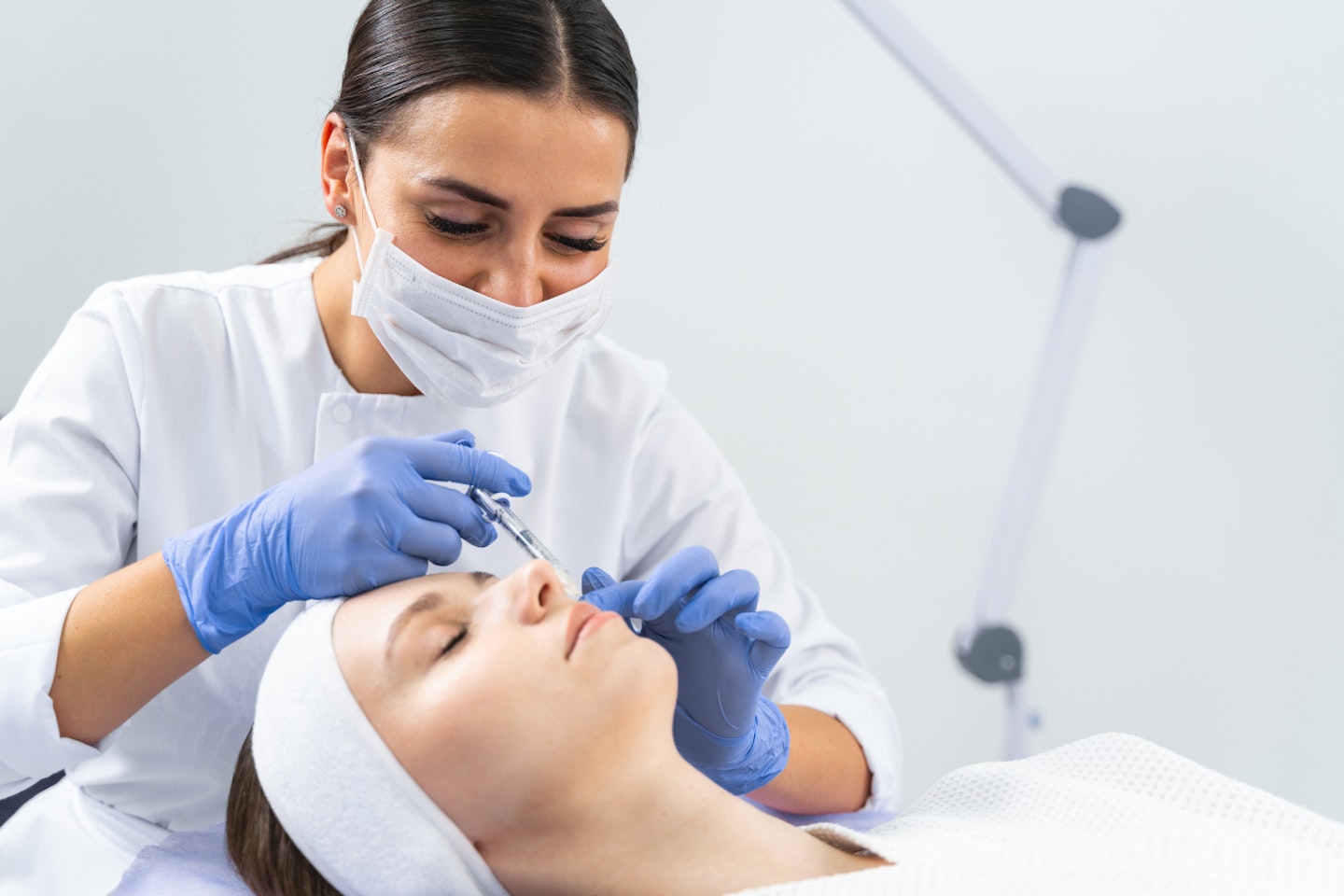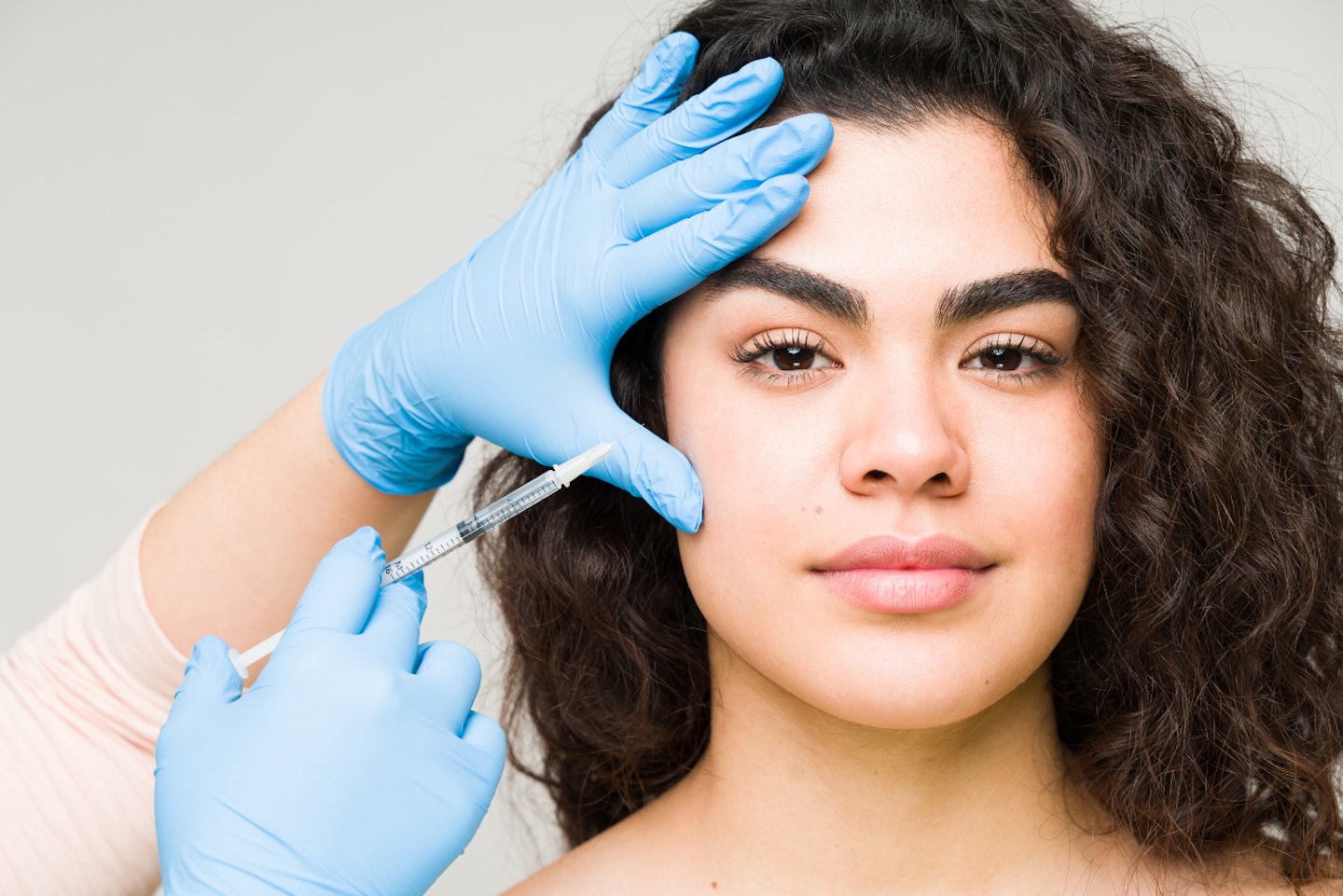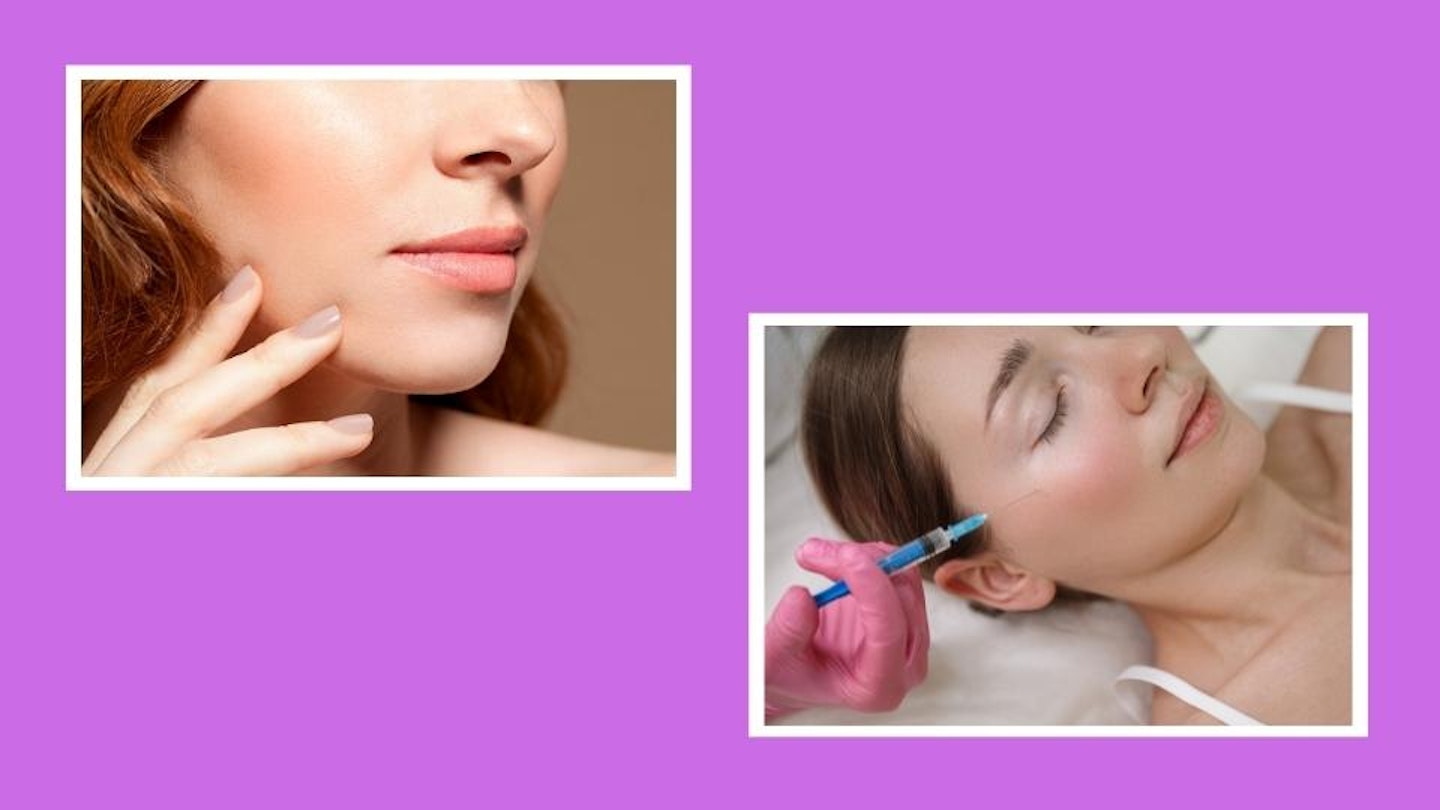It’s easier than ever to tweak your appearance these days, with cheek fillers and other facial rejuvenations all rising in popularity. It’s been seven years since Kylie Jenner kickstarted the lip fillers boom and although the likes of Molly-Mae Hague and Faye Winter are bringing back natural lips, it’s becoming more common to give other areas of your face a little boost.
Believe it or not, there are plenty of reasons why people decide to get cheek fillers and they’re not all purely cosmetic. But, whether you’re contemplating the treatment yourself or you know someone else who’s had it done, there’s plenty to consider before you decide to go under the needle.
To find out everything there is to know about cheek fillers we’ve enlisted Dr Sina Salmi, a leading cosmetic doctor with over 20 years of experience and managing director of Estetica, to help us answer all the questions.
From cost to benefits, risks and recovery time, here’s all the vital information…
What are cheek fillers?
Cheek fillers are dermal fillers injected into the cheek area to help contour and balance facial structure. Dr Sina says, "As well as strengthening the cheek contour and restoring volume to the natural facial landscape, cheek fillers can smooth away fine lines and wrinkle as well as help reduce the appearance of dark undereye circles."
Treatments usually last around 45-90 minutes (including consultation time) and don't worry, the procedure isn't painful.

What types of cheek fillers are there?
Dermal fillers in the UK usually contain hyaluronic acid but Dr Sina says that can also contain other biodegradable substances like calcium, hydroxylapatite, collagen and poly L lactic acid.
What are the benefits of cheek fillers?
The main benefit of cheek fillers is, of course, to add volume and definition to the cheek area. Dr Sina explains, "Due to several reasons such as ageing, weight loss, a shift in hormone levels, exposure to UV rays, smoking, and injury, the facial skin can lose volume and laxity. As a result, the cheekbone area can appear sunken, by using cheek filler we can restore the loss of volume and cheek definition."
The benefits aren't purely cosmetic though, as cheek fillers also bring hydration to the skin and the results are immediate.
Another benefit of cheek fillers compared to other treatments such as a face lift or cheek fillers in that the procedure is minimally invasive, with quick recovery time.
Are there any risks to getting cheek fillers?
Dr Sina explains that cheek fillers are usually low risk when done by a specialised practitioner, there can be complications if administered by someone who isn't fully qualified. He says, "To reduce adverse events, only those who have received appropriate training should be allowed to practice aesthetic medicine. Understanding of the vascular anatomy of the face and adequate training are the keys in minimising the risk during filler injection procedure, bearing in mind that blood vessel anatomy can vary among patients."
Complications can be both immediate and delayed, with delayed complications sometimes taking weeks - and even up to a year - to develop.
Immediate complications are usually caused by improper technique or wrong filler material and include:
-
Skin discolouration
-
Redness
-
Hyperpigmentation
-
Asymmetry
-
Skin irregularities and lumps
Delayed complications include:
-
Migration of filler
-
Immune reactions
-
Scarring and discolouration
How long do cheek fillers last?
"Cheek fillers can last between eight and twelve months," says Dr Sina, however you may need a top up to achieve the results you want.
How much do cheek fillers cost?
The price of cheek fillers varies depending on the type of filler and where you have them injected, but prices typically start at around £270/ml.

Do cheek fillers require any aftercare?
There is little downtime after cheek fillers as it is a minimally invasive procedure, however some patients may experience bruising and slight swelling afterwards - this is normal and nothing to be concerned about.
"To avoid excess bruising and swelling, I advise all my clients to avoid drinking alcohol and strenuous exercise for 48 hours, this will help keep inflammation down," says Dr Sina. He also recommends avoiding exposure to extreme heat or sun, like sunbathing or a sunbed. However, if you can't avoid being in the sun then use sun protection.
Facials and chemical peels should also be avoided for up to 14 days after cheek fillers as they can cause the fillers to dissolve or migrate.
